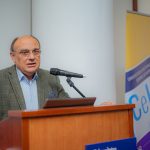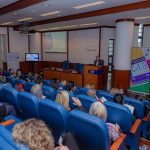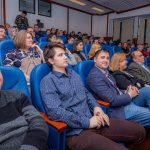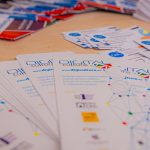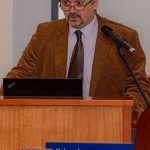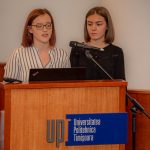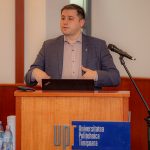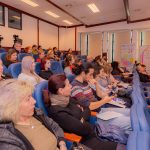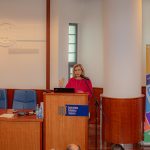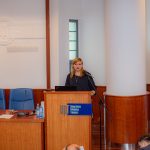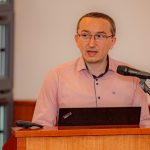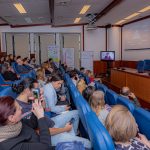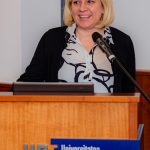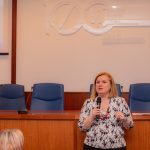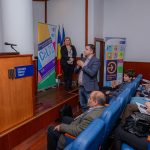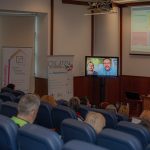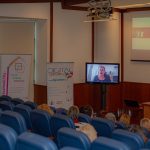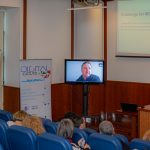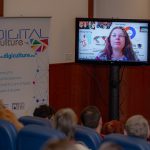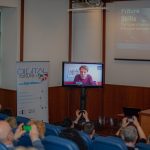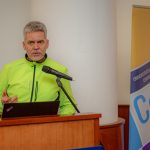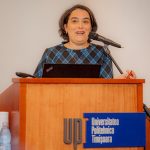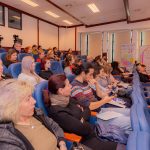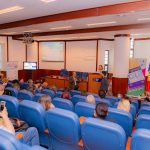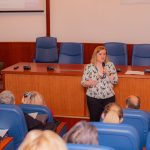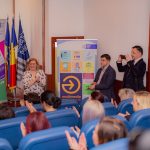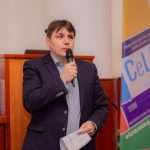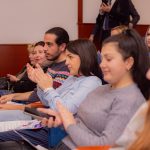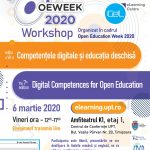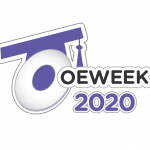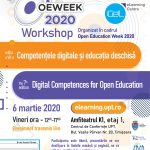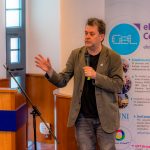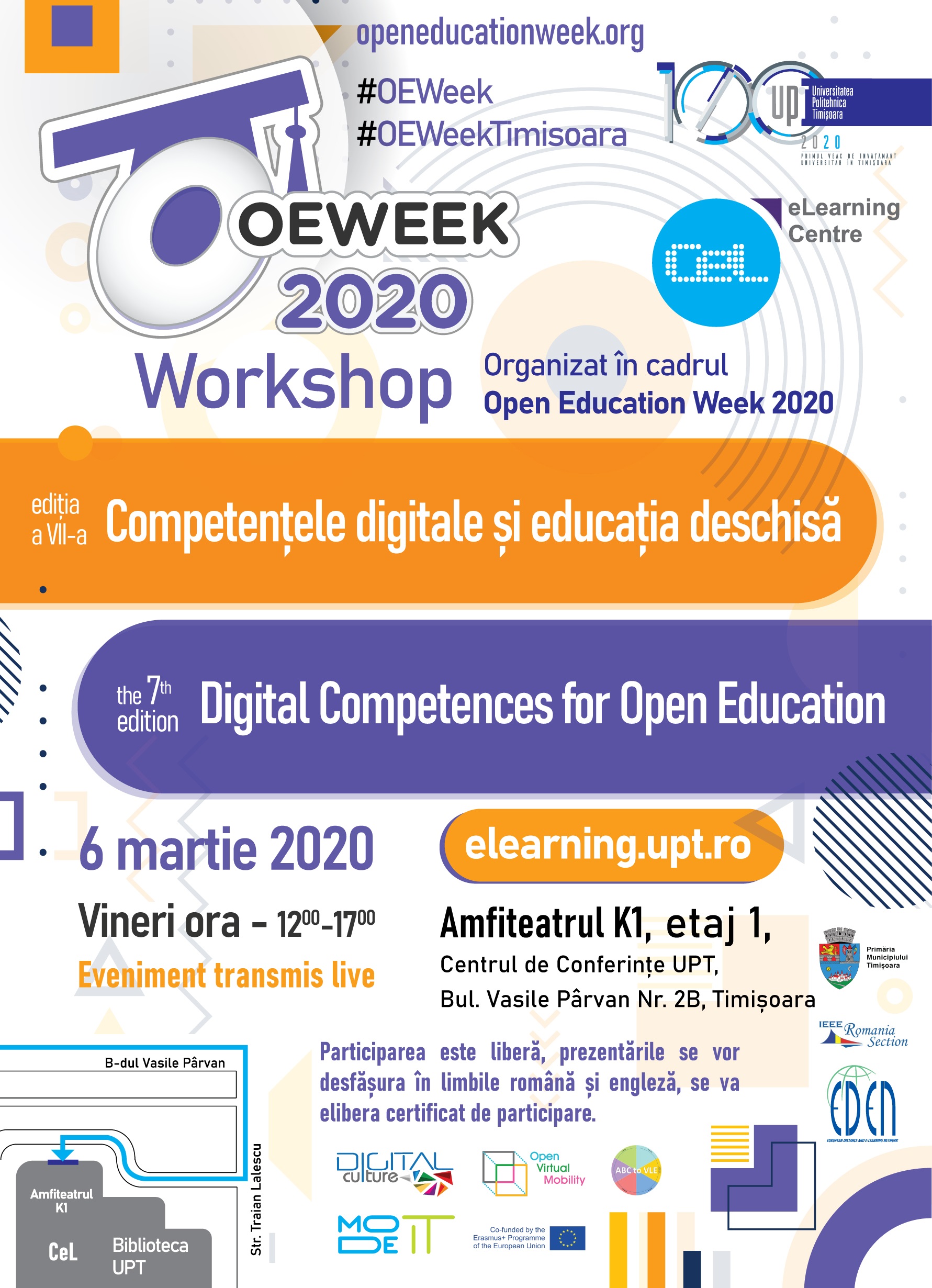
Closing of the 7th edition of the Digital Skills and Open Education Workshop - the benefits of digital skills and open resources
Polytechnic University of Timișoara, through the ID / IFR and e-Learning Center and the Multimedia Research Center with the support of EDEN and IEEE associations organized the workshop Digital Skills and Open Education - event that attracted over 100 participants including teachers from universities and high schools, but also trainers in IT or human resources departments.
In addition to those in the hall, part of the audience watched the event broadcast live on Facebook.
20 international speakers from 6 European countries presented the latest news related to open education in Romania and the European Union during the 7th edition of the Digital Competences for Open Education, organized as part of Open Education Week 2020. The workshop highlighted the impact of openness in the digital age, from policies to individuals, teachers and students.
With a history of several years of implementation, the workshop examined ways in which open educational resources (OER), massive open online courses (MOOC), Open Culture and Open Science they can be integrated into all levels of education and training within institutions and companies. Also, practical examples of use and integration of open educational resources in universities, pre-university or informal education, mobile learning, student involvement in creating educational content, augmented and virtual reality in education, open research were presented. , the way in which the notion of blockchain influences education but also the way in which the terms open and digital are reflected in culture and heritage.

The event was opened by Assoc. dr. Liviu Ioan CĂDARIU-BRĂILOIU - Vice-rector of UPT, followed by Prof.univ.dr.ing. Radu VASIU, the president of the UPT Senate and director of the Multimedia Research Center and Dr. Diana Andone, Director of the ID / IFR and e-Learning Center, and the main organizer of the event.
Why open educational resources?
As every year, the main themes of the workshop were open education and free resources in education and the series of presentations was opened by Dr. Diana Andone, which detailed the experience of the Polytechnic University of Timisoara with open and mixed education and training but also about the community of practice in open education, the variety of tools and benefits of open education and concepts such as "open education road map" or open education policies at European and global level .
Open education in science and how it affects us
The importance of openness in both education and science, as well as the challenges of open access to scientific publications and open data, were emphasized by Prof.dr.ing. Radu Vasiu, president of the Senate of the Polytechnic University of Timișoara. He detailed the impact and benefits of these practices worldwide in areas such as education or health.
Students' perspective on open education
What is the perspective of students on e-Learning platforms and what can be improved in the courses uploaded on e-Learning platforms? Prof. Dr. Eng. Mugur Mocofan, Polytechnic University of Timișoara presented the results of his research within the Computer Assisted Training course from the Pedagogical Module within UPT and the analysis of the proposals of the students from the Polytechnic University of Timișoara for the structure of the courses on e-Learning platforms.
And students can create open educational resources. Patricia Todor and Petrișoara Rață, Polytechnic University of Timișoara are students in the second year of the master's degree in Multimedia Technologies and told the audience step by step about their experience in creating and developing open educational resources.
Because improving education can only be done by orienting students, Ș.L.Dr.Ing. Vlad Mihăescu, Polytechnic University of Timișoara he proposed to over 100 students from UPT to evaluate a MOOC-type platform - the Open VM platform. The methods used by him, but also the way in which the students understood and presented the evaluation of an educational platform were reported in the workshop.
Will we have recognized diplomas after online courses?
One of the great challenges in open educational resources and in the implementation of online courses is the challenges encountered in their official recognition. Using blockchain technologies in education could solve this challenge in the future, he says Prof.dr.ing. Carmen Holotescu, Ioan Slavici University, which detailed the European Union's perspectives on Blockchain's involvement in education.
OER and the global stake
Beyond formal education, open educational resources and digital technologies can offer new perspectives and solutions to the global problems of humanity. Assoc. Prof. Dr. Gabriela Grosseck, West University of Timisoara spoke about global concepts and goals such as economic growth, environmental protection and finding alternative resources and the importance of digital technology in achieving these goals.
A chronological synthesis of the activity of the e-Learning and Multimedia Centers within UPT in the use of digital and open educational platforms, but also their impact and the results brought in the educational process were presented by Ș.L.Dr.Ing. Andrei Ternauciuc, Politehnica University of Timișoara, which detailed data from his experience of over 13 years in the development of Moodle platforms for education at the Polytechnic University of Timisoara.
ABC to VLE
The opening of educational design was the topic addressed by Dr. Clive Young and Dr. Natasha Perovic, University College London who explained to the audience about the workshops organized with the teachers from the university environment within the ABC to VLE project - a project in which UPT is also a partner, through CeL. The project aims to translate the ABC instructional design method into the virtual environment.
Digital skills and OER
In order to use open educational resources effectively, teachers need certain digital skills. The importance of acquiring these competencies, but also of training the teaching staff in the subject were exposed during the workshop by Dr. Sandra Kucina Softic, President of EDEN (European Distance and E-learning Network). She spoke about the importance of teachers' digital skills for learning in contemporary educational settings, but also about the growing interest of teachers to integrate technology and digital skills in both educational settings and everyday life.
Where do we find digital skills courses?
Dr. Diana Andone offered a series of free resources and tools to pedagogues for the evaluation and development of digital skills in the pedagogical training of future teachers, but also those in the system - from courses dedicated to educators in primary and secondary education to the university level.
In addition, during the workshop, she also announced that, starting in April, teachers and more will be able to enroll in a series of 13 digital skills courses available online, courses developed within the Erasmus + Digital project. Culture - project coordinated by the Polytechnic University of Timișoara in partnership with several European universities.
How do we change mindsets?
The integration of digital skills in the education of future teachers is often a challenge both in implementation and as a change in practices and mindsets. Prof. Ulf-Daniel Ehlers, Baden-Württemberg Cooperative State University told the audience about a series of research projects aimed at helping to change the mentality in university education and to train future skills for the education of the future.
Non-formal education with the help of technology
Beyond university and pre-university education, open educational resources, but also digital skills have proven that they can contribute to improving the quality of life in different areas of society. A concrete example was represented in the workshop by Prof. Alexandra I. Cristea, Durham University, who told both the gym and online about the TechUPwomen project and the experience in training and supporting disadvantaged women in computer careers.
And Ebba Ossiannilsson, EDEN & ICDE highlighted the benefits of opening up education in industry and spoke about online training opportunities for the European workforce - an initiative of the European Commission's EASME / DG GROW.
When it comes to children, more and more studies suggest that the impact of technology on their daily lives cannot be avoided. However, there are a number of movements that bring technology into children's lives and guide it for educational purposes. And the results are spectacular. One of these examples is movement Coder Dojo, through which children learned to write code in a non-formal environment.
In this edition of the workshop, Radu Ticiu, Banat IT told how pre-university children learn biology and programming simultaneously with the help of technology, through the movement BioCoderDojo Timisoara A project developed in conjunction with Alexandra Fortiș, West University of Timișoara.
The benefits of non-formal and unconventional education were presented by Camelia Mingasson, Kratima Cultural Association who told the public about the Cultural Passport project or how over 200 children from Timișoara managed to improve their creativity, over tea, in a cafe, where they had the opportunity to interact with different personalities from the cultural environment.
At the end of the event, there were free discussions with the audience on the topics presented above.
The Workshop papers will be available online on the online educational platform UniCampus.
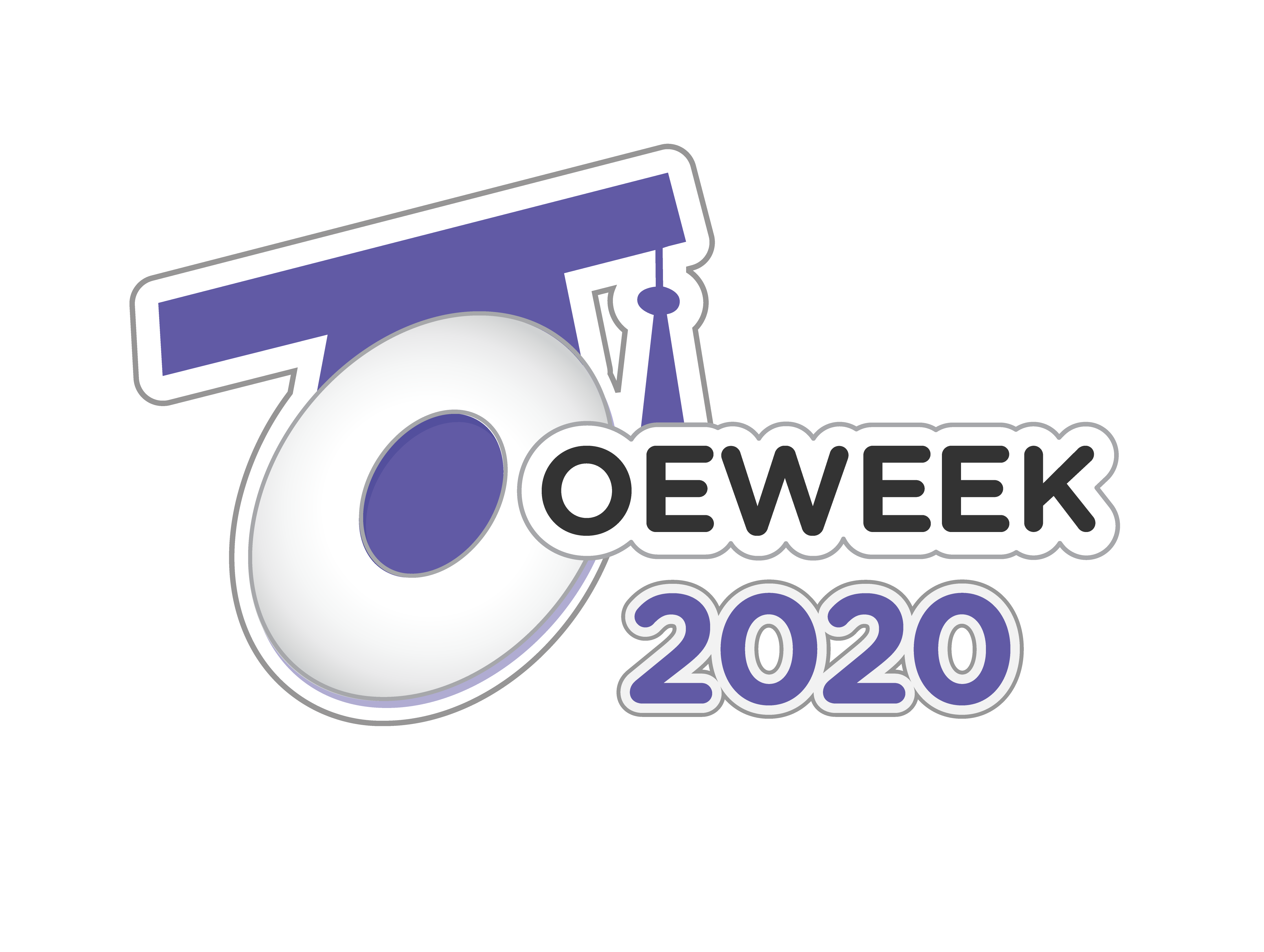
Open Education Week
Open Education Week is an event promoted by the global association Open Education Global, aiming to present the opportunities offered by open education, the results of its integration in all forms of education, whether it is the development of skills or knowledge in the workplace, as a support for university or pre-university education or simply to learn something new, related to a personal interest of each individual.
See more events related to Open Education Week:
Registration open for the Digital Competences for Open Education workshop
Friday, March 6, in the K1 Amphitheater (UPT Conference Center), ...
Read MoreRegistration open for free webinars offered by EDEN during Open Education Week
Between March 2-6, 2020, you can participate in the 6 ...
Read MoreWorkshop Digital Competences for Open Education
What are the OER open educational resources and the massive open courses ...
Read MoreWorkshop Open Education in the Digital Age
Organized during the Open Education Week 2019 (Open Education Week), ...
Read More